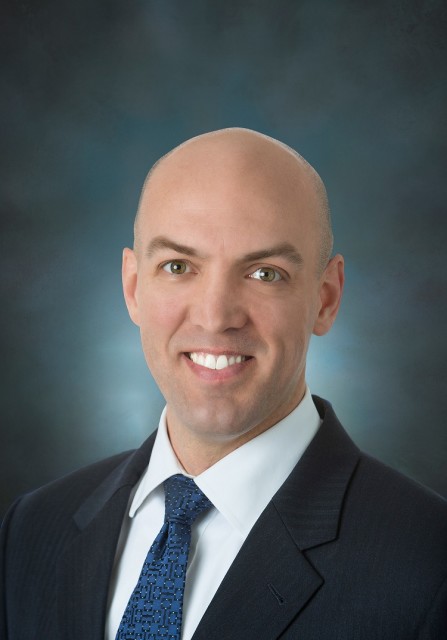WASHINGTON – Challenges to faith-based organizations are making it increasingly difficult to serve the public while meeting their mission. The Heritage Foundation published a new special report from Eric Kniffin, an attorney with Lewis Roca Rothgerber LLP, that offers an overview of these issues and how a mission audit can help organizations prepare to meet those challenges.
Protecting Your Right to Serve: How Religious Ministries Can Meet New Challenges Without Changing Their Witness examines present and emerging pressures on religious organizations from government and culture, provides an overview of the religious freedom protections in federal and state constitutions and laws, and outlines a mission audit for religious congregations and ministries.
“Despite these challenges, religious groups can take steps to protect their ability to continue serving the public and operating according to their mission. While religious organizations have not asked for these confrontations, they can choose how to respond to them,” says Kniffin, a member of the Religious Institutions Group at Lewis Roca Rothgerber.
The special report helps religious congregations and ministries understand the present and emerging threats to religious liberty and outlines practical steps they can take in response, he explains.
- Section I of the report illustrates present and emerging pressures on religious organizations from government and culture.
- Section II provides an overview of the religious freedom protections in federal and state constitutions and laws, both what these laws protect and what a religious organization typically must show to qualify for such protection. Despite recent hostility toward some religious groups, American law and culture still reflect a strong commitment to religious liberty.
- Section III, the core of the Special Report, outlines a mission audit for religious congregations and ministries to undertake in light of these challenging circumstances. Just as a general audit helps an organization understand its financial soundness, a mission audit will help a religious organization understand how its religious convictions affect its work and how these convictions may face conflict.
The proposed mission audit outlines the kind of practical steps religious institutions can take to avoid such conflicts, improve their ability to claim religious liberty protections, and prepare themselves for potential challenges.
“Eric Kniffin’s Heritage Foundation special report is the most authoritative paper written on this subject. It is the best identification of legal risks and the best plan for protecting ministries,” asserts Martin Nussbaum, co-chair of Lewis Roca Rothgerber’s Religious Institutions Group.
“As this summary has demonstrated, many religious organizations are finding it increasingly difficult to operate according to their mission and convictions,” writes Kniffin. “America’s commitment to religious liberty remains strong, but there are ongoing efforts to force religious organizations to abandon their convictions and conform to new moral norms.”
Kniffin states that it is imperative for religious organizations to complete a mission audit to help them understand potential challenges and improve their capacity to protect their freedom to minister and work in accordance with their faith.
Audits must be tailored to the particular organization and involve three basic steps, said Kniffin:
- Evaluation of how well its documents and operations reflect its religious mission.
- Identify specific pressures likely to be faced from local, state and federal laws and regulations, as well as from other sources.
- Make strategic decisions to protect the organization’s mission in light of the context described above.
Additionally, an institution must identify other potential challenges including facility use policies, gender identity issues, volunteer criteria and sexual abuse policies.
Religious congregations and ministries are facing unfamiliar challenges with increasing frequency, adds Kniffin. Recent months have seen a major escalation in the willingness of political and other leaders to use cultural, political, and legal pressure against religious groups and individuals that resist the newest manifestations of the sexual revolution.
“While religious organizations have not asked for these confrontations, they can certainly be proactive and choose how to respond,” Kniffin continues.
Protecting Your Right to Serve: How Religious Ministries Can Meet New Challenges Without Changing Their Witness can be found on The Heritage Foundation web site.
Click here for a PDF version of Kniffin’s report on Lewis Roca Rothgerber’s Religious Liberty Archive. Additional related content is available on The Religious Liberty Archive at ChurchStateLaw.com.
Kniffin will be speaking at The Heritage Foundation’s 2015 Antipoverty Forum in Washington, DC on Nov. 19. He is featured in “Protecting the Freedom to Serve: Faith-Based Ministry Preparedness for New Cultural Challenges,” with an introduction by Sen. Ben Sasse (R-NE) and moderated by Roger Severino, director of The DeVos Center for Religion and Civil Society, The Heritage Foundation.
Attorneys in the Lewis Roca Rothgerber Religious Institutions Group serve religious organizations with sensitivity to their distinctive characteristics and with knowledge and experience regarding their unique legal status.
“Our lawyers routinely advocate on behalf of religious entities in administrative settings and in state and federal trial and appellate courts from coast to coast, and also consult with and advise general counsel serving a variety of religious institutions,” Nussbaum explains.
For more information on the Lewis Roca Rothgerber Religious Institutions Group, click here.
About Lewis Roca Rothgerber LLP
Lewis Roca Rothgerber LLP is one of the largest law firms in the western U.S. with approximately 250 attorneys serving clients across eight offices including Phoenix, Tucson, Denver, Colorado Springs, Las Vegas, Reno, Albuquerque and Silicon Valley. The firm maintains thriving practices in litigation, business transactions, intellectual property, gaming, regulatory and government and more. For additional information visit lrrlaw.com.
###





